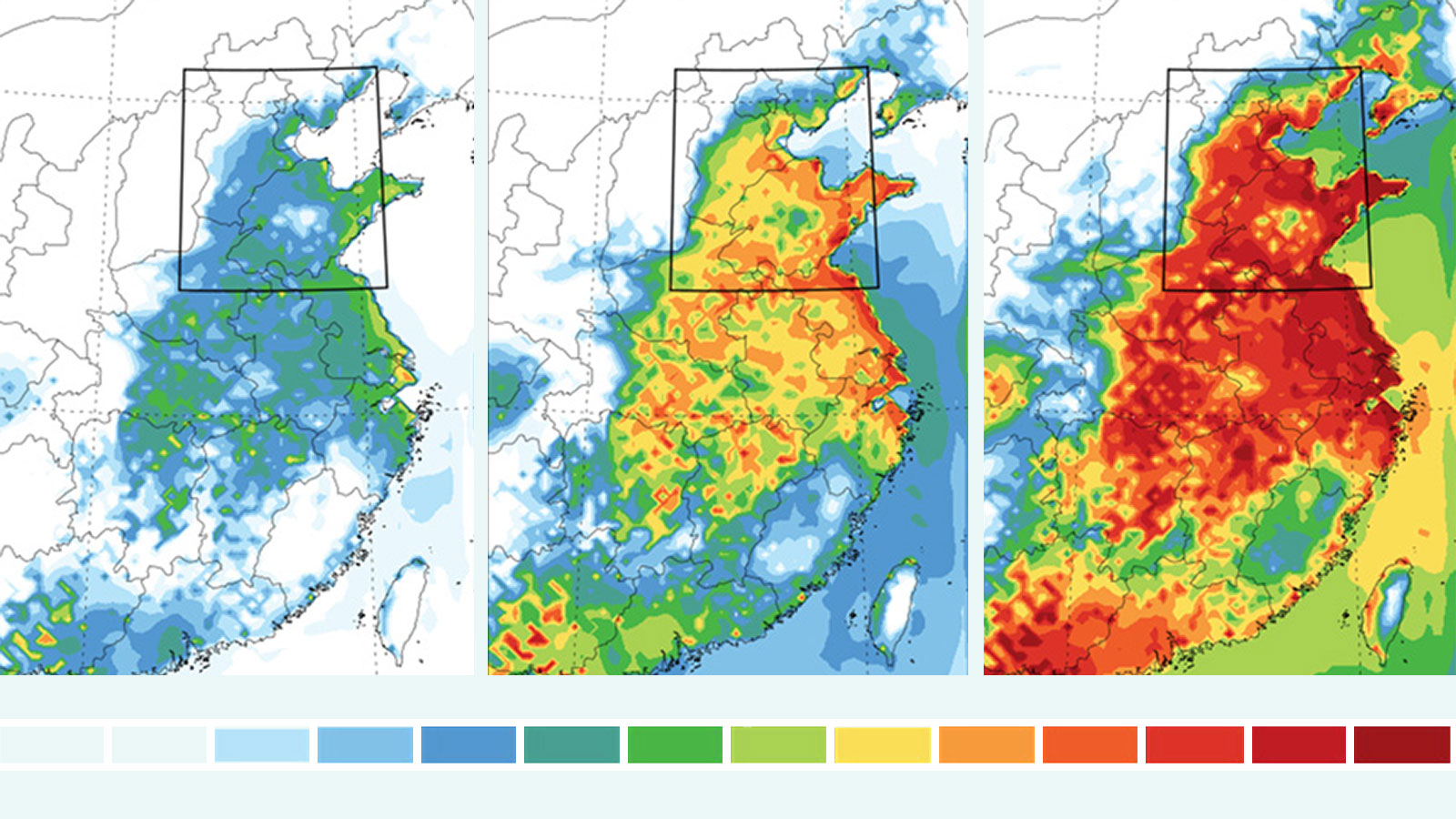
A region that holds one of the world’s biggest concentrations of people could be pushing against the boundaries of habitability by the end of this century, a new study shows.
Unless drastic measures are taken to limit climate-changing emissions, China’s most populous and agriculturally important region, the North China Plain, could face the most damaging heat effects on the planet, at least as far as human life is concerned.
The study shows that the risk of deadly heat waves is significantly increased because of intensive irrigation in this relatively dry but highly fertile region. Irrigation exposes more water to evaporation, raising the humidity in the air and exacerbating the physiological stress caused by high temperatures.
The new findings come from Elfatih Eltahir, a professor of hydrology and climate as well as civil and environmental engineering at MIT, and Suchul Kang at the Singapore-MIT Alliance for Research and Technology. The key index for determining survivability in hot weather, he explains, involves the combination of heat and humidity, as determined by a measurement called the wet-bulb temperature. This reflects the body’s ability to shed heat through the evaporation of sweat from the skin. At a wet-bulb temperature of 35 °C (95 °F), a healthy person may not be able to survive outdoors for more than six hours. Without drastic emissions reductions, that threshold will be reached several times in the region between 2070 and 2100.
“This spot is just going to be the hottest spot for deadly heat waves in the future,” Eltahir says. The region has already seen a substantial increase in extreme heat waves over the last 50 years, the study shows.
Keep Reading
Most Popular
How scientists traced a mysterious covid case back to six toilets
When wastewater surveillance turns into a hunt for a single infected individual, the ethics get tricky.
The problem with plug-in hybrids? Their drivers.
Plug-in hybrids are often sold as a transition to EVs, but new data from Europe shows we’re still underestimating the emissions they produce.
What’s next for generative video
OpenAI's Sora has raised the bar for AI moviemaking. Here are four things to bear in mind as we wrap our heads around what's coming.
Stay connected
Get the latest updates from
MIT Technology Review
Discover special offers, top stories, upcoming events, and more.